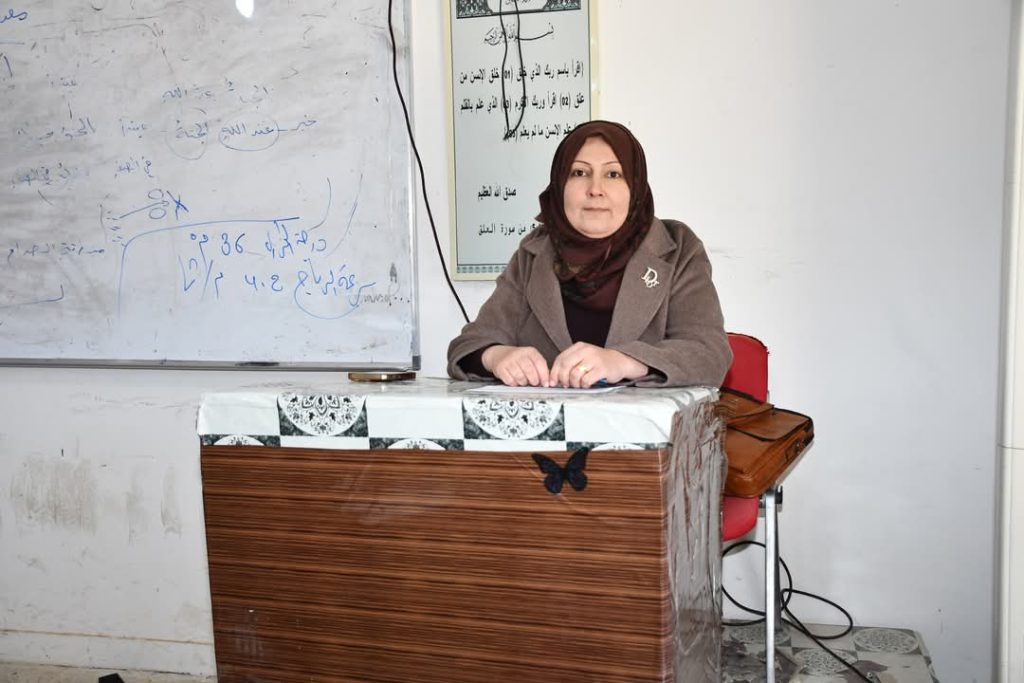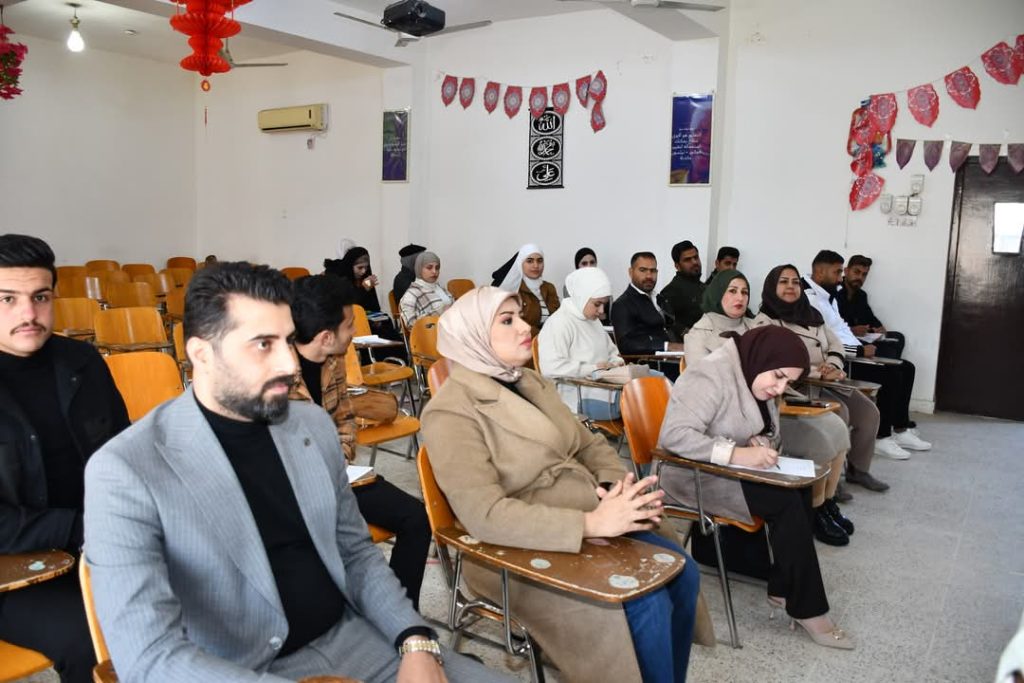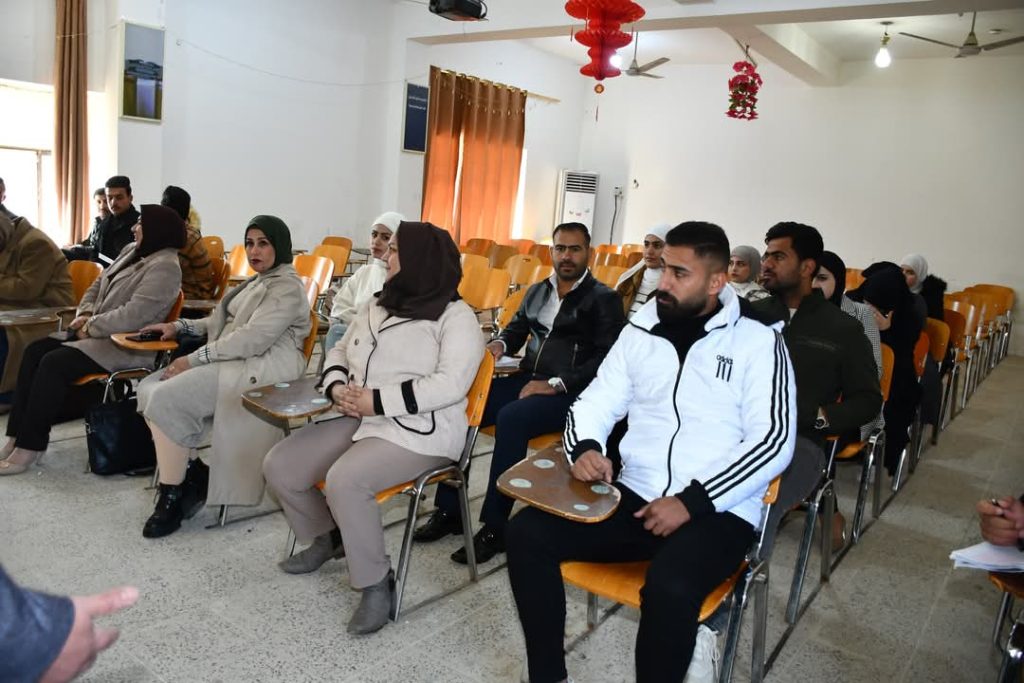
The Department of Geography, in collaboration with the Women’s Affairs Unit at the College of Education for Humanities, University of Diyala, held a seminar on the “Rights of Working Women.
The Department of Geography, in collaboration with the Women’s Affairs Unit at the College of Education for Humanities, University of Diyala, held a seminar on the “Rights of Working Women.” The seminar, presented by Professor Israa Haitham Ahmed, addressed the historical, legal, and religious dimensions of women’s labor rights in Iraq.
Key Points Discussed:
- Historical Development of Labor Laws in Iraq:
- Iraq witnessed significant advancements in the private sector starting in the 1970s and 1980s.
- The first Iraqi Labor Law (Law No. 71 of 1987, as amended) was enacted during this period.
- A new labor law (Law No. 37 of 2015) was later introduced to align with developments in the non-governmental labor sector.
- Women’s Participation in the Workforce:
- The establishment of factories, workshops, and large companies has enabled women to enter the private sector and compete with men across various jobs.
- This competition necessitated legal interventions to safeguard women’s labor rights and recognize their significant societal contributions.
- Iraqi labor laws have adapted to include provisions related to wages, working hours, leave, and other rights for female workers. However, certain clauses in the labor law still require revision to better address women’s needs.
- Legal and Religious Perspectives:
- Islam acknowledges the right of women to work. Verses in the Qur’an and prophetic traditions emphasize the importance of work as worship, without distinguishing between men and women.
- No definitive religious texts prohibit women from engaging in specific professions or occupations.
- The Iraqi Constitution guarantees equality among citizens, ensuring no discrimination based on gender in the right to work.
- The state is obligated to adopt measures that assist women in participating in diverse fields while balancing family responsibilities with professional roles.
- Supportive Legal Framework:
- Labor laws include provisions to facilitate women’s participation in the workforce.
- These include mechanisms that help women balance family obligations with professional and occupational responsibilities.
Recommendations:
- Strengthen and revise specific articles in the Iraqi Labor Law related to women workers.
- Promote awareness about women’s labor rights to ensure their protection and support in various employment sectors.
- Encourage policies that help women reconcile familial duties with societal and professional contributions.






